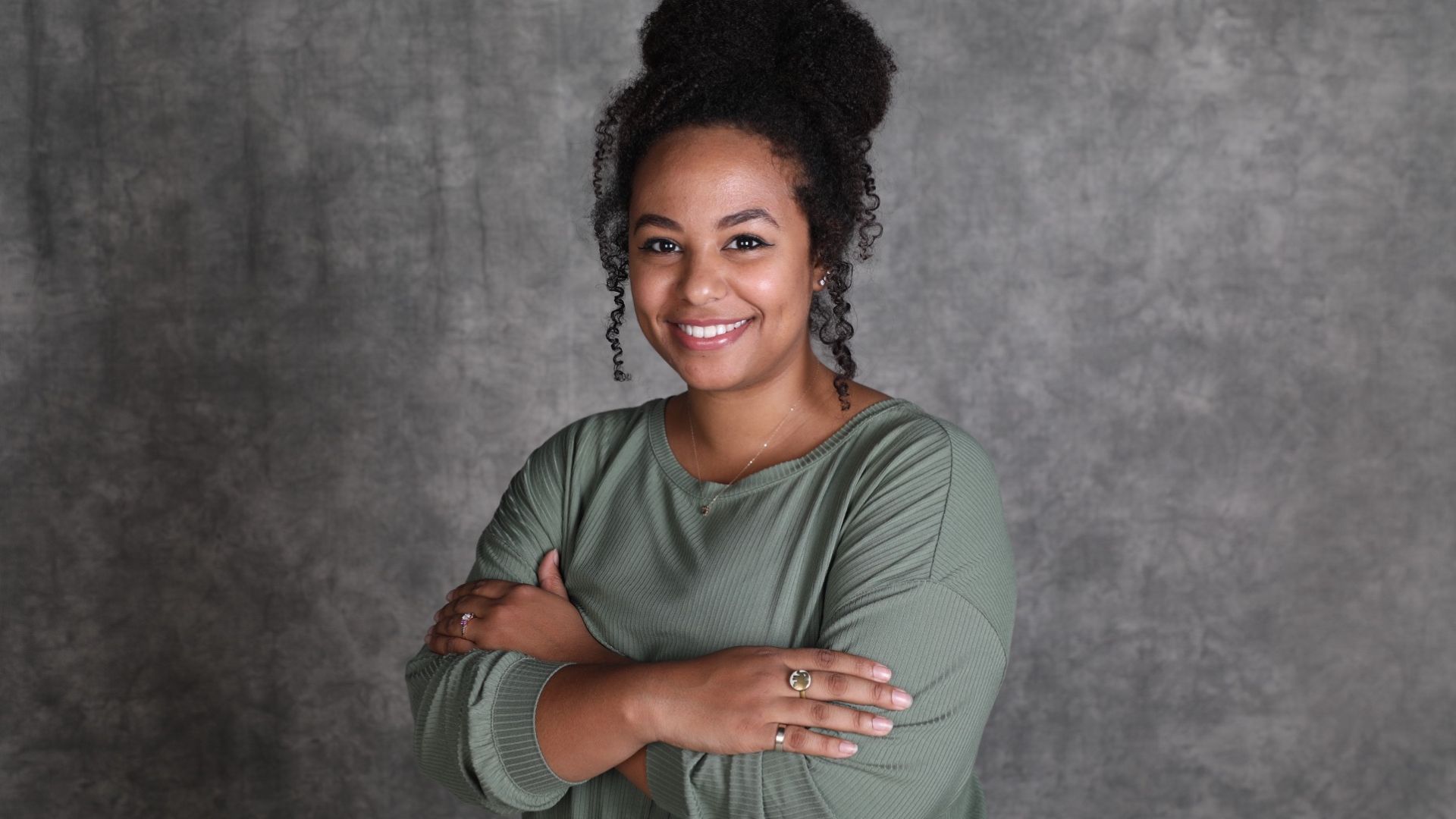Doctoral candidates are faced with many decisions on the path to defending their dissertation. Each student's journey is unique, from topics and theories to coursework and advisors. But, the journey doesn’t stop once a dissertation is defended or a diploma is received.
After finishing her first year as an assistant professor at the University of South Carolina, media and communications doctoral program alum Wesley E. Stevens, KLN ’22, chose to take the next step in her career as an academic by submitting her dissertation to the Association for Education in Journalism and Mass Communication’s (AEJMC) Cultural and Critical Studies Division.
Encouraged by the administration in South Carolina and her dissertation advisor, former Associate Dean for Research and Graduate Studies Brian Creech, Stevens threw her dissertation in the ring for the division’s Outstanding Dissertation award.
To be considered, Stevens had to condense her dissertation, Black Influencers: Interrogating the Racialization and Commodification of Digital Labor, from around 200 pages to just ten pages and send it in with a cover letter from Creech.
Stevens was thrilled that she won and headed to Washington in August 2023 for the 106th Annual AEJMC Conference to accept the award. There, she reunited with Creech and other Klein College of Media and Communication faculty who made an impact on her as a student, such as Carolyn Kitch and David Mindich.
This is the second year in a row that a Klein College alum has won the Outstanding Dissertation award from the cultural and critical studies division. Shannon Rooney, KLN ’13 ’20, earned the honor last year.
At an after-hours function with past and present faculty and students, Dean David Boardman shouted out Stevens as someone that Klein College is particularly proud of this year.
Before coming to Temple University in the fall of 2017, Stevens often pursued rhetorical analyses of media from a critical and cultural lens. However, as she started moving through her core classes, she took an interest in the theories and methodologies she could use to explore racial identity on social media platforms.
In MMC 9612: Critical Analysis of Mass Media with Creech, Stevens would stay after class every week to try and gain a deeper understanding of the theories she was learning about in class.
“She was an incredibly talented student, and it was obvious that her interest in theory was incredibly rich,” Creech said.
After publishing a piece on blackfishing, a form of cultural appropriation in a commercial context, Stevens returned to her roots in rhetorical analysis to begin her dissertation on the ways television and film portray blackness.
However, as the COVID-19 pandemic began and the Black Lives Matter movement saw increased social media activism, Stevens turned her attention to the discourse around Black influencers.
“That’s really what ended up shifting my dissertation topic,” Stevens said.
Specifically, Stevens explored #black Tumblr, a space on Tumblr for long-form, in-depth posts about everything from Black history to Black girl magic. It combined Stevens’ passion for analyses and interest in influencing to create the perfect space for her to explore for her dissertation.
While pursuing her degree, Stevens was a teaching assistant for Mindich’s Journalism and Society class. Mindich noted her innate ability to explain complex ideas to undergraduate students and provide detailed, constructive criticism of students’ papers.
Though he did not serve on her dissertation committee, Mindich and Stevens would still discuss her work.
“It offers a historical perspective but also places these issues in the present,” Mindich said. He described the dissertation as both timely and timeless. That is, it looks at current problems of systemic racism and the history that has caused it.
Mindich and Creech feel lucky that they were a part of Steven’s academic journey at Temple and are not surprised she received recognition from AEJMC this year.

